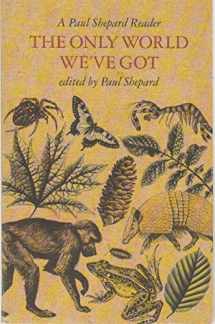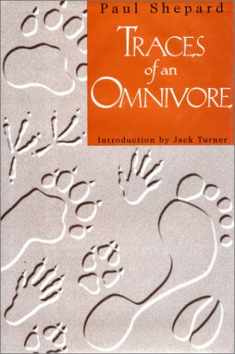
The Only World We've Got: A Paul Shepard Reader
Book details
Summary
Description
Philosopher and essayist Paul Shepard (19251996) brought to the environmental literature of the 1960s and ’70s the political passion of the time, but a passion matched with a demand for scholarly precision. This anthology from his work, which Shepard himself assembled not long before his death, addresses themes touched on in many of his books. Many of these themes deal in one way or another with the disastrous consequences of humankind’s increasing detachment from the natural world as a by-product of the ecological insolence of the last century.”
In Shepard’s view, the natural worldand particularly the world of animalsis the source of human intelligence and the wellspring of the imagination. He examines, for instance, the antiquity of the human eye, an organ essential to the cognitive revolution that distinguishes us from other primates; the origins of language and literature in the imitation of birdsong; and the lessons animals of many species can teach us about ourselves. Shepard delves into environmental psychology, anatomy, history, linguistics, and a host of other topics to make his strikingly original arguments, which have helped shape modern environmental thinking and influenced the writings of such successors as Barry Lopez and Terry Tempest Williams.


We would LOVE it if you could help us and other readers by reviewing the book
Book review




